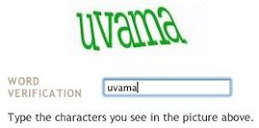This exercise is advanced sentence combining; it is designed for students who have completed Lesson 9 in the course.
Sentence 1: February has almost ended, and that should mean the end of the really cold weather.
Sentence 2: In March, the old snow tends to linger on the ground, gradually start to melt, and look very dirty.
Sentence 3: By the end of the month, there should be a big change in the weather.
1. Use a gerund to combine the sentences.
2. Use an appositive to combine the sentences.
3. Use a relative pronoun to combine the sentences.
Wednesday, February 27, 2008
Subscribe to:
Post Comments (Atom)


5 comments:
1. Meaning the end of the really cold weather, the end of February is when the old snow, which tends to linger on the ground, gradually starts to melt and look very dirty, but it isn’t until the end of March that we can expect to see a big change in the weather.
2. The end of February, meaning the end of the really cold weather, is when the old snow that tends to linger on the ground gradually starts to melt and look very dirty, but it isn’t until the of end March that that we can expect to see a big change in the weather.
3. The end of February, which means the end of the really cold weather, is when the old snow that tends to linger on the ground gradually starts to melt and look very dirty, but it isn’t until the of end March that that we can expect to see a big change in the weather.
1. Meaning the end of really cold weather, the end of February is when the old snow, that tends to linger on the ground, gradually starts to melt and look very dirty, yet it isn't until the end of March in which we expect to see a big change in the weather.
2. The end of February, meaning the end of the really cold weather, is when the old snow tends to linger on the ground, gradually starts to melt and look very dirty; however it isn't until the end of March that we can expect to see a big change in the weather.
3. The end of February, that means the end of the really cold weather, is when the old snow in which tends to linger on the ground, gradually begins to melt and look very dirty, but it isn't until the end of March that we can expect to see a big change in the weather.
Milijana: Good work!
Sara: #s 1 and 2--good, but very similar to Milijana's sentences; #3--"in which" is not correct.
Let me try again.
1. Sensing the end of really cold weather, the end of February; a time when the old snow that tends to linger on the ground, slowly begins to melt and look very dirty, yet it isn't until the end of the next month that we expect to see a big change in the weather.
2. The end of February, sensing the end of the really cold weather, is a time when the old snow tends to linger on the ground, slowly begins to melt and look very dirty; however it isn't until the end of the next month that we can expect to see a big change in the weather.
3. The end of February is the end of the really cold weather; it is a time when the old snow that tends to linger on the ground, slowly begins to melt and look very dirty, but it isn't until the end of the next month that we can expect to see a big change in the weather.
Sara : #1--you can't use a semicolon after a phrase; it comes after an independent clause; #2--you have a misplaced modifier--the end of February can't sense anything;-)#3--much better.
Post a Comment